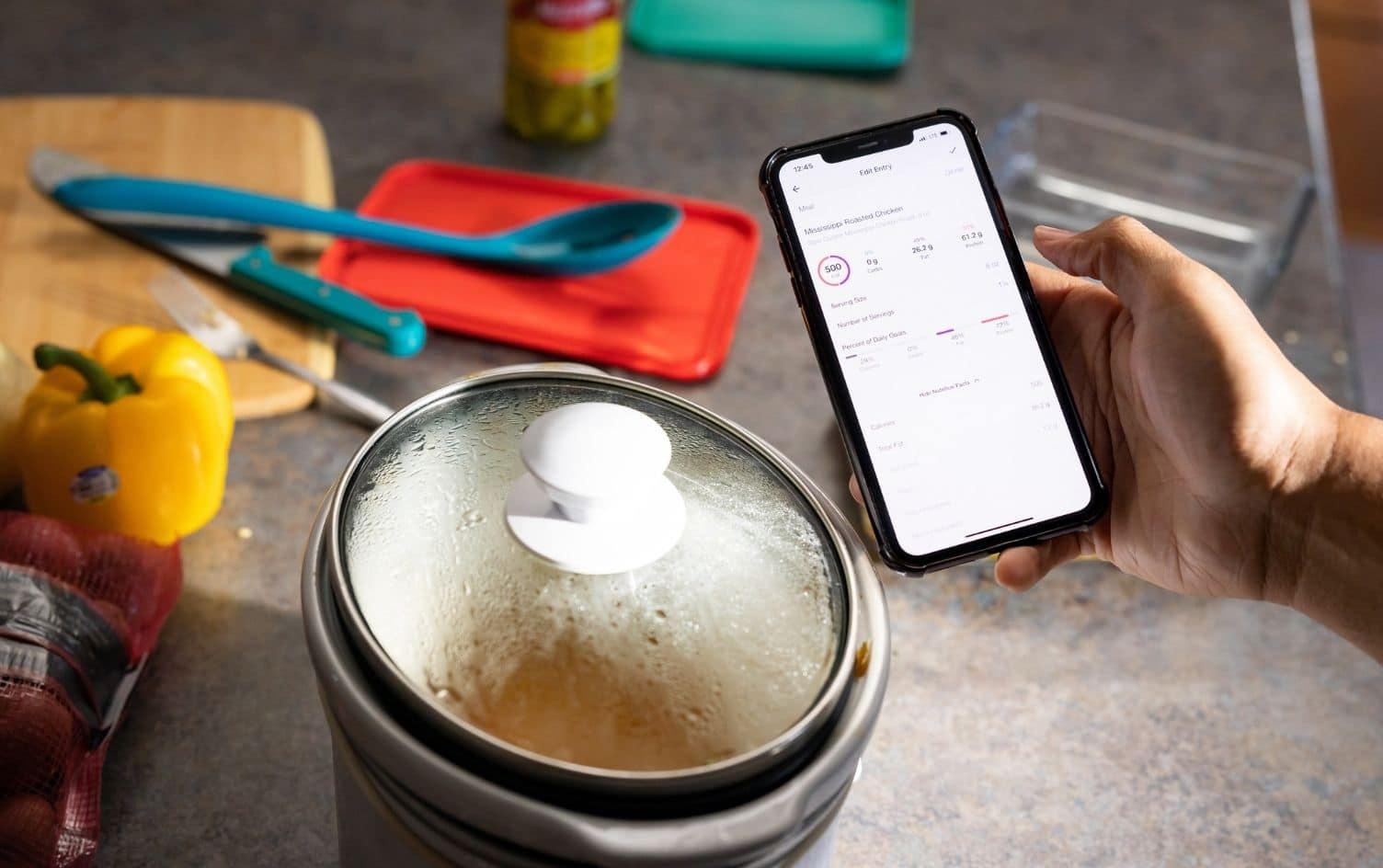Lots of people associate food logging with weight loss. It makes sense because keeping track of what you eat is one of the most effective ways to achieve the calorie deficit you need to lose weight. That said, keeping a food diary isn’t just about losing weight. In fact, there are lots of other amazing benefits to tracking your food with MyFitnessPal. So, if weight loss isn’t on your agenda, or you’re curious what else your food tracking habits can do for you, here are a bunch of other expert-approved benefits to food logging.
CULTIVATE MINDFULNESS ABOUT FOOD
“Logging your meals can make you more mindful of what and how you’re eating,” explains Claudia Hleap, a registered dietitian. “If you log everything you eat, it’s that much harder to mindlessly grab something as you’re walking past the kitchen.” Often, the act of tracking provides eye-opening insight into how much you’re eating throughout the day.
GET ON A REGULAR EATING SCHEDULE
If you’re super busy, this one’s for you. Food logging can be majorly helpful for people who forget to eat meals and snacks throughout the day, says Mary Mosquera-Cochran, a registered dietitian at The Ohio State University Wexner Medical Center. “I will also often recommend that people who are tracking their food for this reason try to notice if there are changes to energy levels, focus, appetite or food cravings when they’re eating more regularly.”
SUPPORT ATHLETIC PERFORMANCE
“If you’re feeling tired and experiencing low energy during your workouts, you should start tracking what you’re eating,” says Lauren Pimentel, a registered dietitian. “Before and after a workout, fueling your body with food is crucial for top performance and optimal recovery.
Tracking can help ensure you are getting the nutrients you need at the correct times.”
TRACK MICRONUTRIENT INTAKE
Tracking macronutrients is super helpful for ensuring you have a balanced diet, but tracking micronutrient intake can also be really smart for your health, Mosquera-Cochran points out. Some to consider include:
- Sodium, which is especially important if you have high blood pressure, a heart condition or frequent bloating
- Iron, which is key if you’re anemic, vegetarian or vegan
- Calcium, which is crucial for bone health
UNDERSTAND WHY YOU EAT
“Keeping a food journal can highlight the reasons we eat,” notes Becky Kerkenbush, a registered dietitian and president of the Wisconsin Academy of Nutrition and Dietetics. “Are snacks and meals linked to times when you are stressed, busy, sad or bored? How do you feel before and after you eat? What is your level of hunger (on a scale of 0–10) before and after a meal?” Knowing what drives your food choices can help you learn a lot about your relationship with food.
IDENTIFY FOOD INTOLERANCES AND TRIGGERS
“When patients come to me with symptoms of gas, bloating, loose stools or constipation, I often recommend they keep a food log to see if we can start connecting the dots between their symptoms and food choices,” Mosquera-Cochran explains. Everyone will have different triggers, but some of the most common ones Mosquera-Cochran sees are dairy, gluten, raw veggies, caffeine and sparkling water.
RECOGNIZE PATTERNS
“The number 1 thing I like using food tracking for with my clients is to build that awareness around their food choices,” says Zoë Schroeder, a registered dietitian and certified strength and conditioning specialist. “It provides a great opportunity to take a bird’s eye perspective of your daily intake and recognize patterns — like not eating enough veggies, for example.” Looking at your daily protein intake is also key for a variety of non-weight loss goals, including muscle gain and improving athletic performance. “Without tracking, we aren’t able to identify specific protein intake and how to improve that.”
DISCOVER HOW OFTEN YOU’RE EATING FOR YOUR GOALS
It’s easy to have an “off” day every now and then, but some people find when they’re not tracking, they tend to have more “off” days than “on” ones. “Tracking your food intake can demonstrate how closely you’re sticking to your nutrition and lifestyle goals and can help to hold you accountable,” Hleap says. “If you’re tracking daily, then you know how many days out of the week you’re sticking to your plan.”
THE BOTTOM LINE
It’s true food tracking is an amazing tool for weight loss. But for people who either aren’t interested in losing weight or have other goals alongside weight loss, there’s still a ton to be gained from keeping a food log in MyFitnessPal — from getting to the bottom of digestive symptoms to working on your relationship with food.
Ready to take the next step? Unlock MyFitnessPal Premium to access custom goal settings, quick-log recipes, and guided plans from a registered dietitian. Premium users are 65% more likely to reach their weight loss goals!




